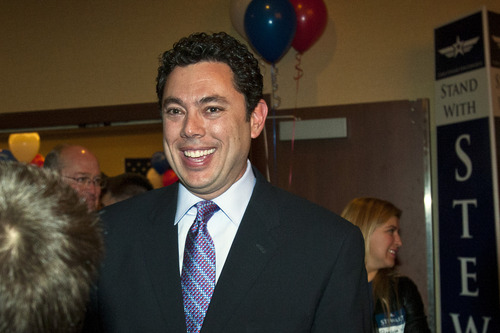This is an archived article that was published on sltrib.com in 2013, and information in the article may be outdated. It is provided only for personal research purposes and may not be reprinted.
Washington • Rep. Jason Chaffetz, R-Utah, says he doesn't want to get paid until the government is back up and running, a growing move among some members of Congress worried about the image of them collecting paychecks against their $174,000 annual salary while federal workers go without.
The Constitution requires that members of Congress are paid — even during a shutdown — but Chaffetz says he will go without as long as other federal employees are in the same boat.
"I'm asking that they hold my check until this is resolved," Chaffetz said.
Meanwhile, the rest of Utah's members are dealing with the government closure by telling some of their staffs to stay home and by curtailing constituent services.
Sen. Mike Lee put 24 of his employees on leave — whether they are eventually paid is up to Congress when the government starts running again — and kept 12 as essential to his constitutional duties. Rep. Chris Stewart kept just three of his staffers and Rep. Rob Bishop kept only a couple, even furloughing his chief of staff.
Rep. Jim Matheson, however, classified all 12 of his employees as essential, and kept both his Utah and Washington offices open. The staffers are being asked to come in, though they won't get paychecks until the government is again running.
"They're all working without pay today, but they're here and they're here to serve the constituents," Matheson said. "We've actually been pretty busy. We've got a lot of calls from folks who quite frankly called other Utah congressional offices and got voicemail and then they called us."
It's up to each member of Congress unilaterally to decide what employees are essential.
Sen. Orrin Hatch's office said it would not discuss personnel matters.
U.S. Constitution, 27th Amendment
No law, varying the compensation for the services of the Senators and Representatives, shall take effect, until an election of Representatives shall have intervened.
(Ratified 1992)



